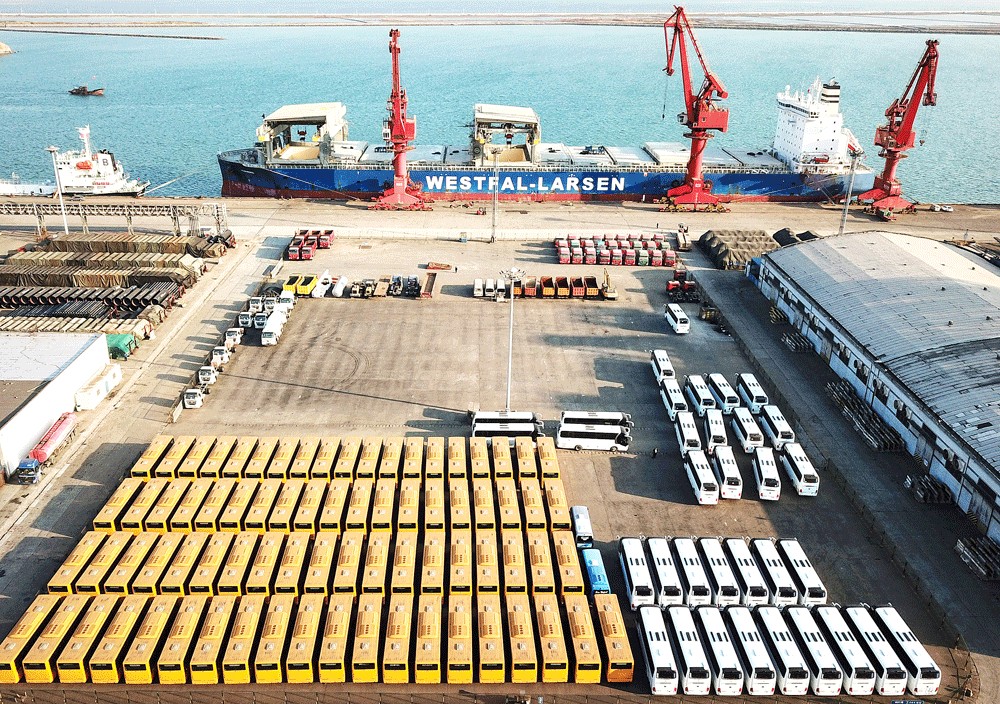Popular Reads
Top Results
Can't find what you're looking for?
View all search resultsPopular Reads
Top Results
Can't find what you're looking for?
View all search resultsAsian factories slammed as China’s PMI drops to record low
South Korea and Japan, where confirmed cases of the virus have accelerated recently, showed sharp declines in production, according to purchasing manager surveys released by IHS Markit on Monday.
Change text size
Gift Premium Articles
to Anyone
A
sia’s factories took a tumble in February under the weight of the rapidly spreading coronavirus outbreak, with a severe plunge in activity in China driving down output across the region.
South Korea and Japan, where confirmed cases of the virus have accelerated recently, showed sharp declines in production, according to purchasing manager surveys released by IHS Markit on Monday. South Korea’s PMI, a critical bellwether of global demand, dropped to a four-month low of 48.7 from 49.8 in January, while the Jibun Bank Japan index declined to 47.8, the lowest reading since May 2016.
Taiwan dropped below 50, the dividing line between expansion and contraction, while Thailand and Malaysia stayed in that territory. Vietnam’s PMI fell to a more than six-year low of 49.
The factory sentiment data shows how the virus is rippling through the region, disrupting supply chains and depressing demand. Travel restrictions are rampant, schools and businesses in pockets of the region are shuttered and governments are scrambling to provide stimulus to shore up their economies.
China’s official PMI plunged in February to a record-low 35.7 from 50 at the start of the year, according to data released Saturday. The big decline signals a worse-than-expected first-quarter contraction, with Nomura Holdings Inc. economists led by Lu Ting projecting the economy shrank 2.5 percent in the first three months of the year from the previous period.
Global markets have been roiled by virus fears, with equities and bond yields sliding on Monday as investors digested the PMI data. Japanese stocks opened 1.3 percent lower, and S&P 500 futures slumped over 1 percent, with a signal from the Federal Reserve Friday that it’s open to easing policy providing little comfort.
Read also: Asian stock markets reverse losses on global policy stimulus hopes
Indonesia was a lone bright spot in the regional data, seeing its PMI gauge rise to 51.9, its first reading in expansion since June. Southeast Asia’s biggest economy has registered no official coronavirus cases amid concern that testing hasn’t been vigorous enough.
Disruption to manufacturing has been evident across the region as companies take steps to stop the virus from spreading.
A Hyundai Motor Co. plant in South Korea last week halted operations after a worker was confirmed to have been infected. Samsung Electronics Co. also temporarily stopped output at one its plants last month after an employee tested positive for the disease.
China’s economy is gradually returning to work with activity likely running at 60 percent to 70 percent capacity last week, according to a Bloomberg Economics report, up from about 50 percent two weeks ago.
South Korea has been particularly hard-hit over the past two weeks as virus cases surged above 3,500.
The Bank of Korea refrained from cutting interest rates when it met last week, opting instead to extend inexpensive loans to small businesses and leaving it for the government to take broader action.
South Korea’s manufacturers and exporters will likely remain under pressure, said Joe Hayes, an economist at IHS Markit.
“Even if demand does recover, day-to-day operations are likely to suffer as firms seek alternative suppliers or operate below capacity until normality across supply chains is restored,” he said.










